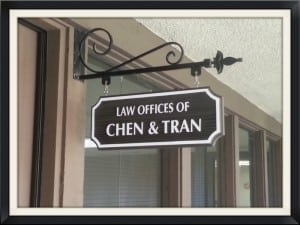 When a debtor files a Chapter 7 or Chapter 13 bankruptcy in Southern California, part of the process involves attending a Meeting of Creditors, otherwise commonly known as a “341 Meeting.” The Meeting of Creditors is known as a 341 Meeting because it is required under section 341 of the Bankruptcy Code. The 341 meeting does not necessarily have to be in court. For example, in Riverside, the location is at the building which houses the United States Trustee’s office for this region. In Orange County, the 341 meeting is held at the Bankruptcy Court house. It is held by a bankruptcy trustee. You will not see a judge at the meeting.
When a debtor files a Chapter 7 or Chapter 13 bankruptcy in Southern California, part of the process involves attending a Meeting of Creditors, otherwise commonly known as a “341 Meeting.” The Meeting of Creditors is known as a 341 Meeting because it is required under section 341 of the Bankruptcy Code. The 341 meeting does not necessarily have to be in court. For example, in Riverside, the location is at the building which houses the United States Trustee’s office for this region. In Orange County, the 341 meeting is held at the Bankruptcy Court house. It is held by a bankruptcy trustee. You will not see a judge at the meeting.
The 341 meeting or hearing
The 341 meeting/hearing provides the bankruptcy trustee a method to question the Debtor to determine whether the information provided in the bankruptcy petition is true, accurate and complete. It helps the trustee to determine whether a debtor qualifies for bankruptcy, has assets or equity, or if the debtor is committing fraud among other issues.
341 meeting questions
- Are you familiar with all of the information contained in your bankruptcy paperwork?
- Did you review and sign your bankruptcy petition and schedules before you filed them with the court?
- Is all of the information in your bankruptcy paperwork complete and accurate to the best of your knowledge?
- Did you list all of your property?
- Did you list all of your creditors on your bankruptcy petition and schedules?
- What is your gross monthly income?
- Have you filed for bankruptcy previously? No
- Are there any changes or omissions that you wish to bring to my attention?
- Do you have alimony or child support obligations?
- Have you filed all of your tax returns that have come due?
- Have you given away or transferred any property within the last two years? (But keep in mind that some trustees may go back further in time.)
- How did you value your property?
- Do you have a business, corporation, or partnership?
- Do you have car and home insurance?